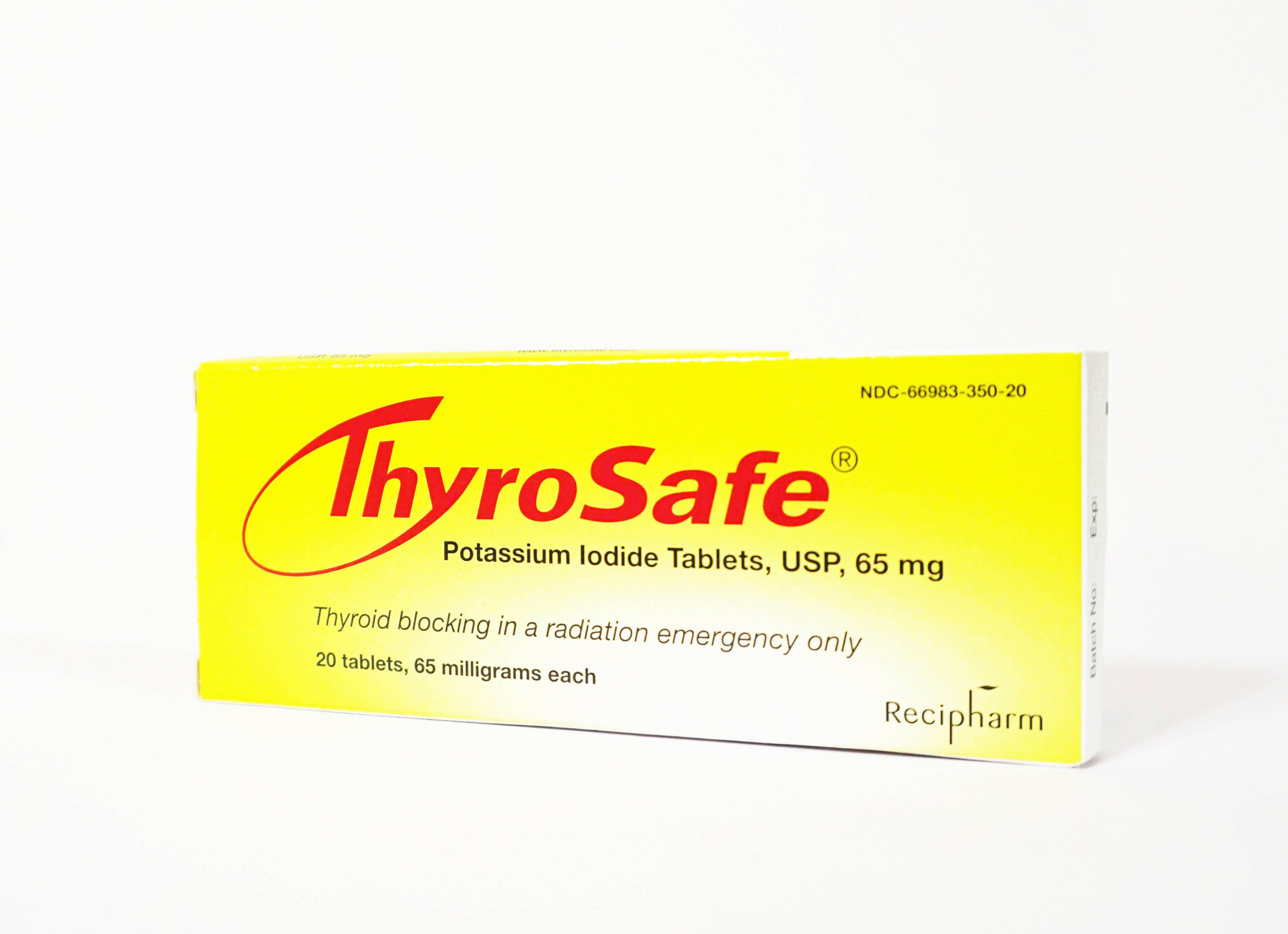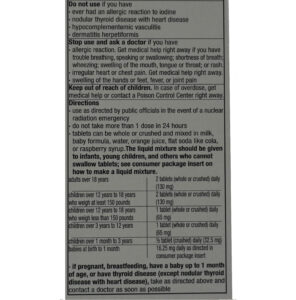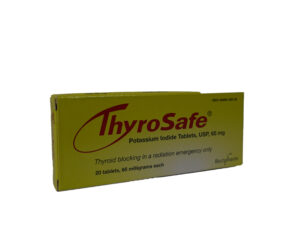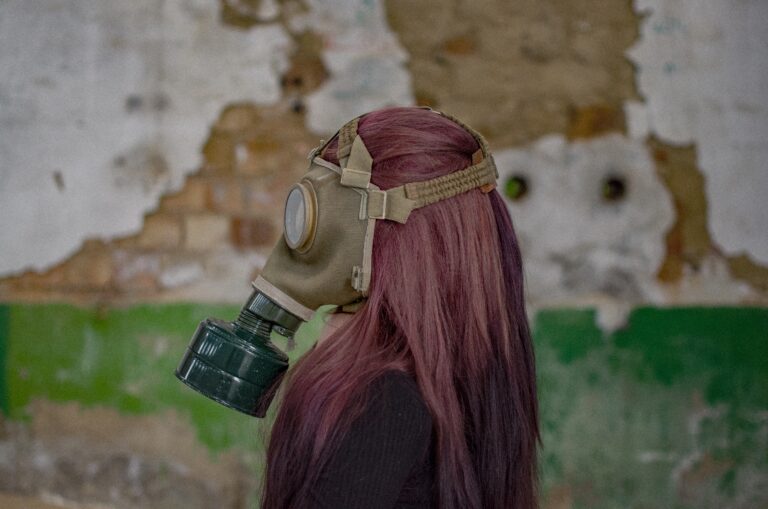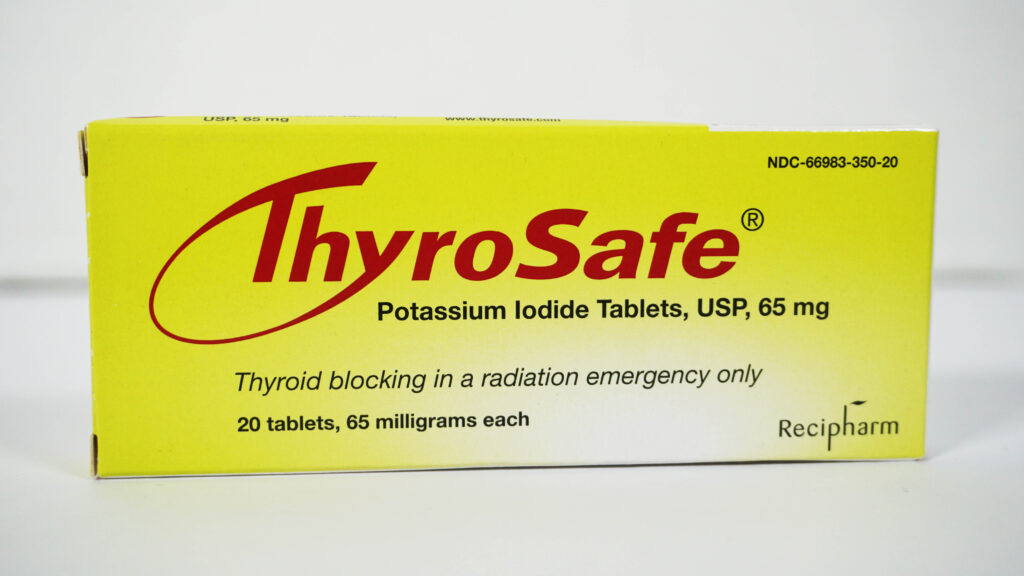
Due to the war in the Ukraine and an uncertain political environment involving China and Taiwan, the threat of imminent nuclear war is once again in the minds of many citizens around the globe. And let’s not forget about that friendly border dispute between North and South Korea.
So the question is, Anti Radiation Pills, do they work? Well, the answer is it depends. First of all, Anti Radiation Pills are otherwise known as (KI) Potassium Iodide.
To have any hopes of surviving a nuclear attack you would need to be clear of the initial blast radius.
Although there is no definitive answer as to how far away you need to be to survive the initial blast, general consensus is that anywhere between 5 to 8 miles would be the minimum. Even then individuals within this range could still very likely suffer temporary flash blindness and anywhere from 1st to 3rd degree burns along with massive radiation exposure.
Beyond 8 miles the most likely danger would be that of falling debris from structures hit by that blast shockwave and then the subsequent radioactive fallout.
Regardless of what anti radiation pills you take, if you are not outside the blast radius your chances of survival are nearly zero.
The other threat of nuclear radiation poisoning would be from a Nuclear Reactor meltdown or leak and subsequent radioactive fallout leaking into the atmosphere and being spread by wind.
Let’s go over recent world activities below and why having anti radiation pills or Potassium Iodide on hand is not a bad idea.
What Are Anti Radiation Pills?
The human body needs a certain level of iodine. Potassium iodide (KI) understood by some as being Anti Radiation Pills is not radioactive and can be used to block and protect against a specific type of material. This material is radioactive iodine otherwise known as (I-131) from being absorbed by the thyroid.
How Does Radioactive Iodine Enter the Body?
Radioactive Iodine will typically enter the atmosphere after a nuclear reactor meltdown but could also come from fallout after a nuclear blast. The most dangerous fall out zone is typically 10 – 25 miles from the detonation source but can travel further. The radioactive iodine that was released into the environment then infiltrates the body by simply breathing.
How does Potassium Iodide Work?
Potassium Iodide works by helping the blocking the thyroids’ ability to absorb radioactive iodine. In order for Potassium Iodide tablets to be effective it must be taken before or shortly after exposure to radioactive iodine. The KEY is your thyroid can absorb radioactive iodine to a point, anything above and beyond that point can be lethal.
Special Notes:
- Potassium Iodide does not offer 100% protection.
- It ONLY protects against radioactive iodine and not other forms of radiation.
- Potassium iodide tablets only protect the thyroid. They do not protect other parts of the body i.e parts of the body with direct exposure to a nuclear blast.
- Must be taken within 24 hours prior or 4 hours afterward to be effective.
When Should You Take Potassium Iodide?
The most important thing to note is to NOT use (KI) Potassium Iodide unless you are instructed to do so by a public health or emergency response professional or healthcare provider / practitioner. In short Potassium Iodide should ONLY be taken in an emergency.
Visit this retailer to purchase Potassium Iodide Tablets.
Why Are More Individuals Buying Up Potassium Iodide?
According to a survey taken by the American Psychological Association, approximately 70% of Americans stated they were worried the invasion of Ukraine was going to lead to nuclear war.
Because of events beyond our control and ever increasing risk of radition exposure by way of nuclear fall out or a reactor meltdown people are looking for ways to survive that situation as best they can.
Individuals and families are seeking out a sort of Anti Radiation tablet to increase their chances of surviving an initial nuclear attack or nuclear reactor catastrophe. Potassium Iodide tablets have once again come to the minds of many around the world.
As of 2021, the US has 55 nuclear power plants spread through 28 states. This means that 28 states have at least one nuclear reactor. There are currently two new reactors under construction and they are scheduled to come online sometime prior to 2023.
More Detail on the Ukraine Refinery:
In case you didn’t know, Europe’s Largest Nuclear plant is in the southern portion of the Ukraine. The Zaporizhzhia nuclear plant is currently occupied by Russian forces and they are using it as a shield to store munitions while at the same time shelling Ukrainian forces from within it boundaries. There is potential of accidental or maybe even intentional discharge of these munitions setting off a chain of events that could cause a reactor meltdown.
What makes this even more ironic is that one of the most catastrophic nuclear reactor leaks occurred previously in Chernobyl in 1986 which is in the Northern part of Ukraine. Chernobyl at the time was controlled by the former Soviet Union.
Other Notable Reactor Meltdowns:
Even prior to Chernobyl, there was a partial reactor meltdown in Three Mile Island Pennsylvania in 1979. The most recent reactor meltdown occurred in Fukushima, Japan in 2011 due to a massive tsunami.
To this day much of Fukushima is till uninhabitable. It was until just recently that 3 to 5 individuals give or take were allowed to move back to the Fukushima town of Fatuba. Fatuba hopes to have around 2,000 inhabitants over the next 5 years or so.
The United States and its citizens are not currently prepared for the after effects of a nuclear disaster of any type, whether an air missile from another nation, an attack on the ground from a terrorist or terrorist group, or some kind of accidental detonation. – Katherine Malus, Columbia Center for Nuclear Studies
Katherine Malus, Columbia Center for Nuclear Studies
Will Potassium Iodide Make me Sick?
The most important thing to note is to NOT use (KI) Potassium Iodide unless you are instructed to do so by a public health or emergency response professional or healthcare provider / prationer.
Potassium Iodide can potentially do harm and cause allergic reactions. The harm that Potassium Iodide can cause is do primarily to taking exactly as prescribed by a physician or public health professional. If you have any pre-existing medical conditions are above the age of 40 or if a child is below the age of 12 consult your physician. Like any drug it is important to follow the dosage instructions on the box.
How long Does Potassium Iodide Last?
According to the CDC (Centers For Disease Control and Prevention) a dose of Potassium Iodide lasts for about 24 hours. Consult a physician with regard to the need for a 2nd dose.
Visit this retailer to purchase Potassium Iodide Tablets.

